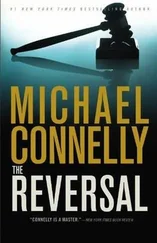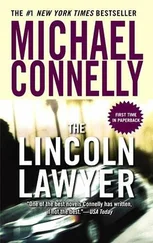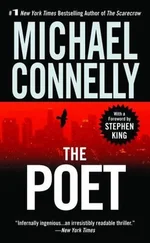Bosch wasn’t going to bullshit him, either. He showed him the list of thirty-four names. Hector whistled lowly and said, “Okay, we’ll run them through, but these are Vietnamese. If their cases were not worked out of this office their files won’t be here. I’ll only have what’s on the computer. Dates of entry, documentation, citizenship, whatever is on the computer. You know how it is, Harry.”
Bosch did. But he also knew that Southern California was where most of the Vietnamese refugees made their homes after making the trip. Hector started typing in the names with two fingers, and twenty minutes later Bosch was looking at a printout from the computer.
“What are we looking for, Harry?” Hector said as he studied the list with him.
“I don’t know. What do you see that is unusual?”
A few moments passed and Bosch thought Hector would say nothing was unusual. A dead end. But Bosch was wrong.
“Okay, on this one I think you will find he was connected.”
The name was Ngo Van Binh. It meant nothing to Bosch other than it had come from the B list; Binh had reported nothing stolen from his safe-deposit box.
“Connected?”
“He had some kind of pull,” Hector said. “Connected politically, I guess you would call it. See, his case number has the prefix GL. Those are files handled by our special cases bureau in D.C. Usually, SCB doesn’t deal with people from the masses. Very political. Handles people like the shah and the Marcoses, Russian defectors if they are scientists or ballerinas. Stuff like that. Stuff I never see.”
He nodded his head and put his finger on the printout.
“Okay, then we have the dates, they are too close. It happened too fast, which tells me this case was greased. I don’t know this guy from Adam, but I know this guy knew people. Look at the date of entry, May 4, 1975. That’s just four days after the guy left Vietnam. You figure the first day is getting to Manila and the last day is getting to the States. That leaves only two days in between in Manila for him to get approval and get his ticket punched for the mainland. And at that time, I mean, man, they were coming in by the boatload to Manila. No way in two days unless it was greased. So what that means is this guy, this Binh, already had approval. He was connected. It’s not that unusual, because a lot of people were. We got a lot of people out of there when the shit hit the fan. A lot of them were the elite. A lot of them just had money to pay to make them elite.”
Bosch looked at the date Binh had left Vietnam. April 30, 1975. The same day Meadows left Vietnam for the last time. The day Saigon fell to the North Army.
“And this DOD?” Villabona said, pointing at another date. “Very short time to receive documentation. May 14. That’s ten days after arrival this guy gets a visa. That’s too fast for the average Joe. Or in this case, the average Ngo.”
“So what do you think?”
“Hard to say. He could have been an operative. He could’ve just had enough money to get him on a helicopter. Lotta rumors still floating around from that time. People getting rich. Seats on military transports going for ten grand. No question visas going for more. Nothing ever confirmed.”
“Can you pull the file on this guy?”
“Yeah. If I was in D.C.”
Bosch just looked at him, and Hector finally said, “All GLs are there, Harry. That’s where the people that people are connected to are. Get it?”
Bosch didn’t say anything.
“Don’t get mad, Harry. I’ll see what I can do. I’ll make a couple calls. You going to be around later?”
Bosch gave him the FBI’s number but didn’t say it was the FBI. Then they shook hands again and Bosch left. In the first-floor lobby he watched through the smoked-glass doors, looking for Lewis and Clarke. When he finally saw the black Plymouth turn the corner as the two IAD detectives finished another circuit of the block, Bosch walked through the doors and down the steps to his car. In his peripheral vision he saw the IAD car slow and turn into the curb while they waited for him to get in his car and drive off.
Bosch did as they wanted. Because it was what he wanted.
***
Woodrow Wilson Drive winds counterclockwise around and up the side of the Hollywood Hills, the cracked, patchwork asphalt never wide enough at any point for two cars to pass without a cautious slowing. Going up, the homes on the left crawl vertically up the hillside. They are the old money, solid and secure. Spanish tile and stucco. To the right, the newer houses fearlessly swing their wood frame rooms out over the brown brush arroyos and daisies in the canyon. They are balanced on stilts and hope and cling as tenuously to the edge of the hill as their owners do to their positions at the studios down below. Bosch’s home was fourth from the end on the right side.
As he drove around the final bend, the house came into sight. He looked at the dark wood, the shoebox design, seeking a sign that it had somehow changed-as if the exterior of the house could tell him if something was wrong with the interior. He checked the rearview then and caught the front end of the black Plymouth nosing around the curve. Bosch pulled into the carport next to his house and got out. He went inside without looking back at the tail car.
He had gone to the pier to think about what Rourke had said. And in doing so he thought about the hang-up call that was on his phone tape. Now, he went to the kitchen and played back his messages. First there was the hang-up call, which had come in Tuesday, and then a message from Jerry Edgar in the predawn hours today, when Edgar had called looking for Bosch to get him out to the Hollywood Bowl. Bosch rewound the tape and listened to the hang-up call again, silently chastising himself for not having picked up on its significance the first time he heard it. Someone had called, listened to his taped message and then hung up after the first message beep. The hang-up was on the tape. Most people, if they didn’t want to leave a message, would simply hang up as soon as they heard Bosch’s tape-recorded voice saying he wasn’t in. Or, if they thought he was home, would have called out his name after the beep. But this caller had listened to the tape and then didn’t hang up until after the beep. Why? Bosch had missed it at first, but now thought the call had been a transmitter test.
He went to the closet by the door and took out a pair of binoculars. He went to the living room window and looked through a crack in the curtain for the black Plymouth. It was a half-block farther up the hill. Lewis and Clarke had driven by the house, turned around and parked at the curb, facing downhill and ready to continue the tail if Bosch came out. Through the binoculars Bosch could see Lewis behind the wheel, watching the house. Clarke had his head back on the passenger seat and his eyes closed. Neither of them appeared to be wearing earphones. Still, Harry had to be sure. Without taking his eyes from the binoculars, he reached over to the front door and opened it a few inches and closed it. The men in the IAD car showed no reaction, no alert. Clarke’s eyes remained closed. Lewis continued picking his teeth with a business card.
Bosch decided that if they had dropped a bug on him, it was transmitting to a remote. It was safer that way. Probably a sound-activated minireel hidden on the exterior of the house. They’d wait until he drove away and then one of them would jump out of the car and quickly collect the reel, replacing it with a fresh one. They could then catch up the tail on him before he got down the hill to the freeway. He walked away from the window and made a quick survey of the living room and kitchen. He studied the underside of tables and electric fixtures but he didn’t find the bug and didn’t expect to. The smart place, he knew, was the phone, which he was saving for last. It had a ready power source, and placement there would provide sound intake of the immediate interior of the house as well as any conversations that came in through the phone.
Читать дальше












